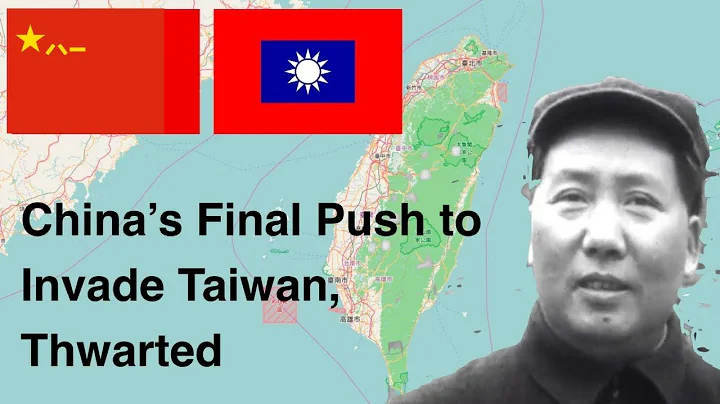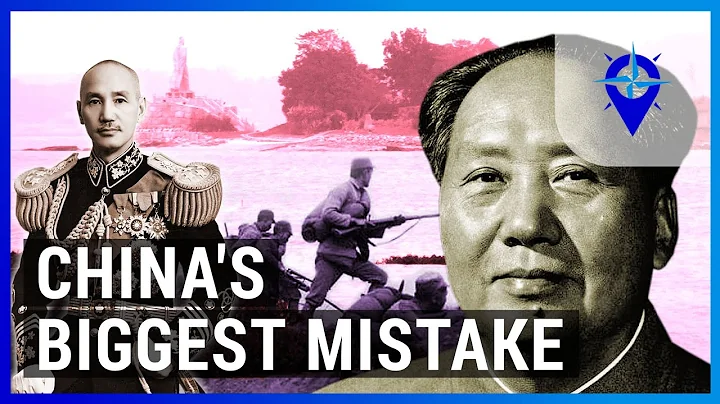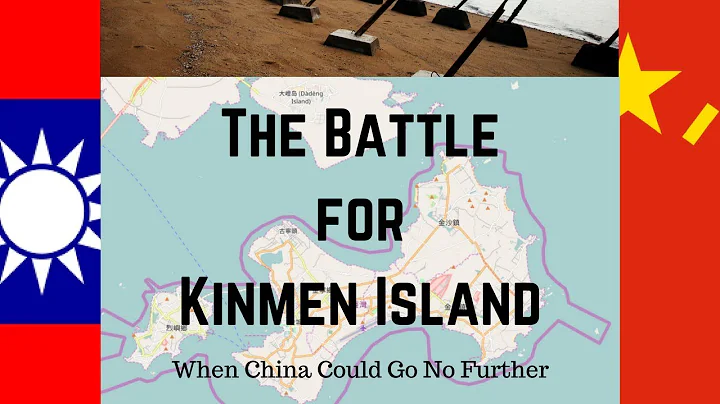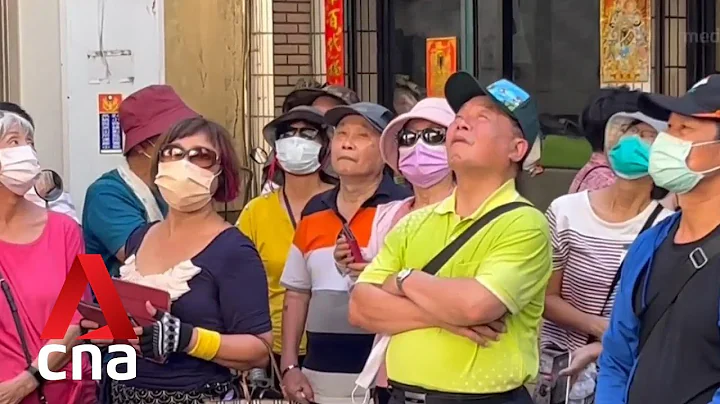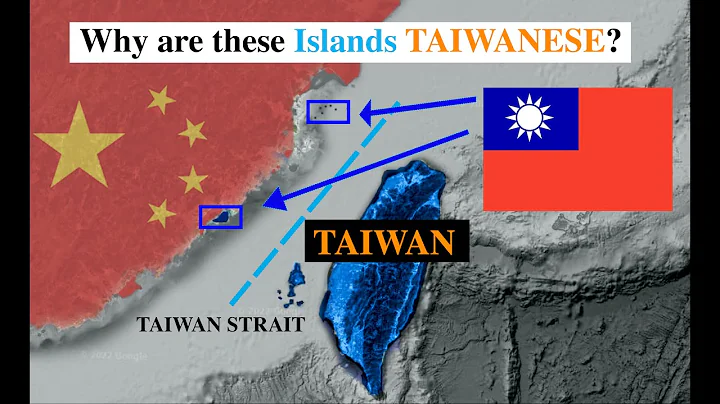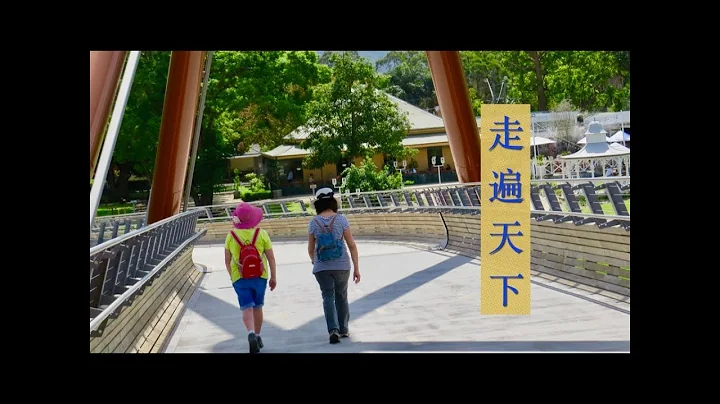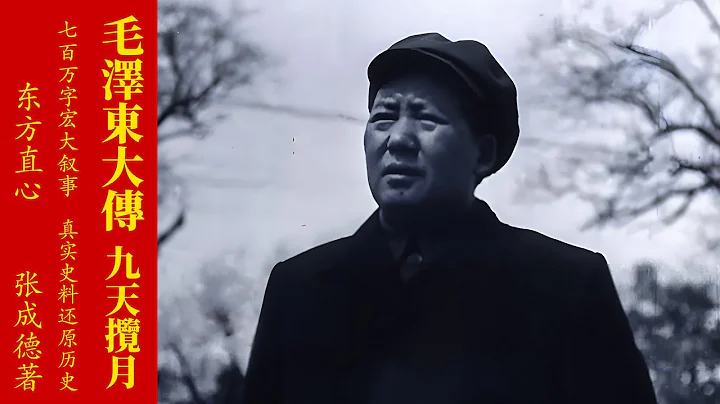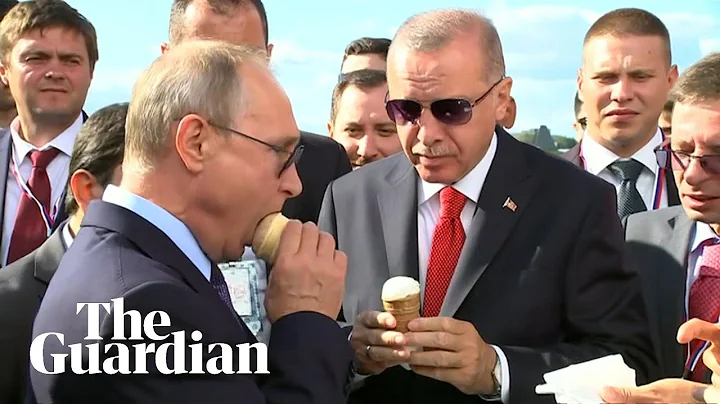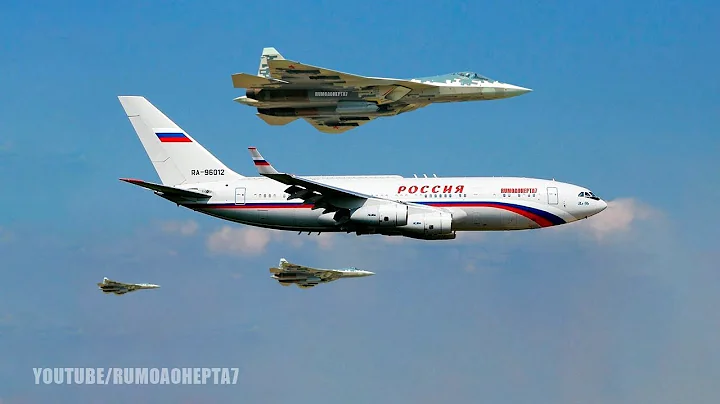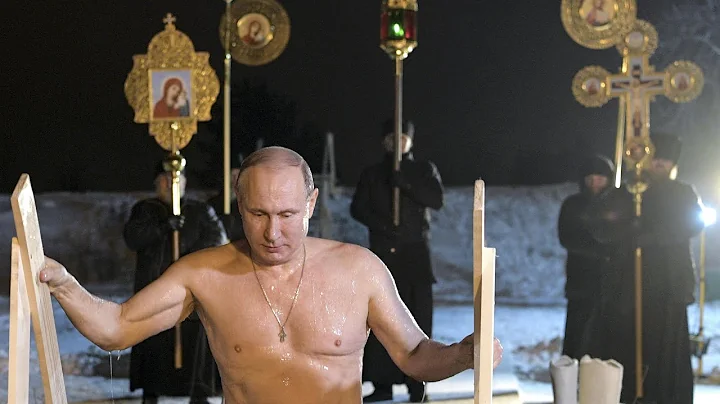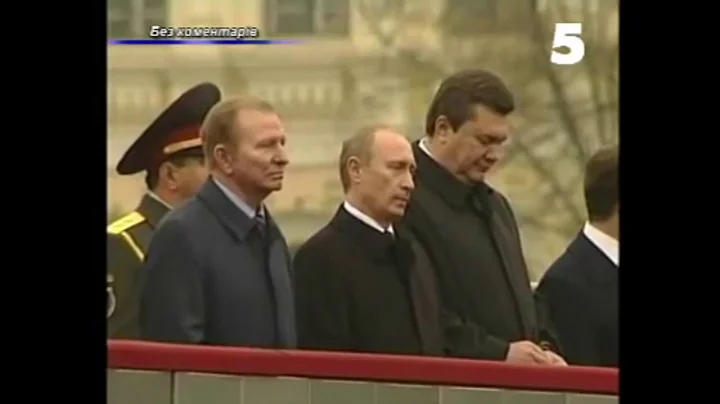
In 1964, Su Yu met his old subordinate, Zhu Shaoqing, then deputy commander of the Fuzhou Military Region. He said with emotion: "If you had not contracted that disease, we would have liberated Kinmen long ago."
Su Yu was talking about 1949 In 2008, during the battle to liberate Kinmen by the Third Field Army , due to a rush of time and uncoordinated command, the Third Field Army suffered a rare failure and caused huge casualties to the troops.
The failure of the Battle of Kinmen resulted in Kinmen not being liberated. For Su Yu, it cannot but be said to be a pity.

In 1913, Zhu Shaoqing was born in Qingshan Township, Huarong County, Hunan, and his original name was Zhu Jixun. In 1928, He Long led some troops from the Nanchang Uprising to fight in xiangxiang and launched the Huarong Riots. At that time, Zhu Shaoqing, who had no money to eat in his hometown, joined many local people in the Red Army .
After joining the army, Zhu Shaoqing participated in the battles of Tiaoxiankou, Gaoji Temple and Catfish Beard. Because he was not afraid of sacrifice and fought bravely, he joined the Communist Party of China in 1930.
In 1931, the Red Sixth Army advanced into Huarong. When Zhu Shaoqing learned that the commander of the Red Sixth Army was Kuang Jixun, he changed his name to Zhu Shaoqing. When he changed his name, no one in his family knew about it. Over the years, his younger brother had been asking about his whereabouts but could not get any definite information. He only learned from Shi Shou Wu Xuezhao: "There was a Zhu Shaoqing in the Eighth Route Army who was born in Dawangchang. My name is Zhu Jixun."
Zhu Shaoqing followed He Long's troops as they fought more and more bravely, and served successively as squad leader, company commander, and battalion commander.

In 1935, Chiang Kai-shek mobilized a large number of troops to carry out a large-scale "encirclement and suppression" of the revolutionary base areas in Hunan, Hubei, Sichuan and Guizhou. The Second and Sixth Red Army Corps had to start the Long March . The next year, the 12th Regiment of the 4th Red Division had just crossed the Pudu River , when the Yunnan Army Sun Du's brigade rushed over and blocked the ferry. It was planned to carry out a half-crossing attack on the Red Army. After
received the news, He Long ordered the vanguard troops to return to block Sun Du's follow-up troops. Before leaving, He Long issued an order: "Knock hard. If you don't want to, knock hard. If you want to knock, hit hard. Only by beating the Yunnan army to pain can they not dare to pursue wildly and cross the Pudu River to the west and the north crossing." Jinshajiang Gain plenty of time!"
Zhu Shaoqing led the whole battalion to turn back to stop the enemy. They braved a brigade of enemies to attack fiercely and captured several hills. By the time Sun Du reacted, his troops had been wiped out. More than 400 people attended.
In this battle, Zhu Shaoqing led the entire battalion to kill the enemy bravely and was praised as the "little tiger".

In January 1936, during the Pingyue battle, Zhu Shaoqing served as the main attacker and was unfortunately injured. However, with amazing perseverance, he still led his troops to continue fighting until the final victory of the battle. In April, during the battle to forcibly cross the Jinsha River, Zhu Shaoqing was ordered to join the first echelon. Braving the enemy's intensive artillery fire, he led the first boat of the 3rd Battalion and 8th Company of the 12th Regiment of the 4th Red Division to forcefully cross the Jinsha River and firmly control the ferry. It ensured that the legion successfully crossed the Jinsha River.
Red 2nd and Red 4th Front Army continued northward after the successful rendezvous. Before crossing the grassland, the troops faced the dilemma of lack of food. In order to find food, they could be said to have racked their brains and searched high and low. Zhu Shaoqing even emptied the stomachs of the Bodhisattvas in the Lamasery before he found some food. There was no firewood in the grassland, so Zhu Shaoqing learned from local Tibetans to burn dried cow dung.
In September 1936, when attacking Lazikou, Zhu Shaoqing was injured again. During the entire Long March, Zhu Shaoqing was injured six times.

After the Long March, Zhu Shaoqing was promoted to commander of the 10th Regiment after recovering from his injuries. After the National Anti-Japanese War, Zhu Shaoqing was transferred to Yan'an Anti-Japanese University to study. After completing his studies, he joined the Chinese New Fourth Army as the commander of the second battalion of the Fourth Detachment, Eighth Regiment, and marched into eastern Anhui to carry out guerrilla warfare. He has successively served as battalion commander, deputy regimental commander, brigade commander, brigade chief of staff, deputy brigade commander, and brigade commander.
In 1940, Wang Jingwei publicly surrendered to Japan and established the puppet Nationalist Government in Nanjing. Hao Pengju, who had always believed that "having breasts is a mother", publicly surrendered to Wang Jingwei.
Hao Pengju's surrender made Wang Jingwei very happy. He was first appointed as lieutenant general, counselor, military attache and director of the Army General Training Corps. Later, he was appointed governor of "Huaihai Province" and concurrently security commander. Xuzhou " Appeasement Office " Lieutenant General Director, under the jurisdiction of 4 armies with more than 70,000 people, competing with the Eighth Route Army and the New Fourth Army on the land of , Huaihai .
After Wang Jingwei died of illness in Japan in 1944, Hao Pengju wrote a letter of loyalty to Chiang Kai-shek. After Japan surrendered, Chiang Kai-shek appointed Hao Pengju as the commander-in-chief of the newly formed Sixth Route Army of the 23rd Army.

In 1946, under the powerful offensive of the People's Liberation Army, Hao Pengju revolted in Taierzhuang. However, in February of the following year, before the Battle of Laiwu, Hao Pengju rebelled and defected to Chiang Kai-shek. He detained Zhu Kejing, who was also the Secretary-General of the Shandong Military Region and Head of the Liaison Department of the New Fourth Army, and sent him to Nanjing, which eventually led to Zhu Kejing died on the outskirts of Nanjing.
Hao Pengju, who returned to Chiang Kai-shek's arms, was reorganized into the 42nd Army and was responsible for the task of attacking the flanks of the Linyi Liberated Area.
Faced with Hao Pengju, who had repeatedly betrayed him, the Central Military Commission and Chief Huaye were also very angry and quickly made a decision to let the second column get rid of Hao Pengju. The commander of the second column, Wei Guoqing, handed over this task to Zhu Shaoqing's fourth division: ordering the fourth division to first wipe out the enemies north of Baitabu, and then attack Hao's headquarters in Baitabu.
On the evening of February 6, 1947, Zhu Shaoqing adopted the tactics of "encirclement and detours, interspersed divisions", and led his troops to fight until the next day and captured Hao Pengju alive.

After capturing Hao Pengju alive, Chen Yi went to see him. As soon as Hao Pengju saw Chen Yi, he hugged Mr. Chen's leg and cried: "I'm sorry for the people, I'm sorry for Commander Chen, Commander Chen, please spare me."
Mr. Chen looked at his "performance" coldly and said seriously: "You I expected that you would take away the troops, and that you would attack us in turn. I also expected that you would be caught by us sooner or later, but I did not expect that you would kill the liaison officer we sent you!"
Listening to Mr. Chen's questioning, Hao Pengju was so frightened that his face turned pale and he could only keep begging for mercy.
Mr. Chen was too lazy to talk nonsense to him, so he waved his hand and asked people to take him to the rear and hand him over to the people. Although he was sent away, Mr. Chen's anger has not subsided. He immediately picked up a pen and wrote: Teach me to be a human being but not a human being. Now I surrender to Seoul and I will capture you, but I still teach you how to distinguish between man and dog.

After that, Zhu Shaoqing participated in the Laiwu Battle, Menglianggu Battle, blockade missions, the Nanma and Linqu blockade battles, and the Zhucheng and Jiaohe offensive battles. In 1948, Zhu Shaoqing was promoted to deputy commander of the second column and chief of staff, and participated in the external attack on the Central Plains battlefield and the internal annihilation of enemies on the Shandong battlefield and the Huaihai campaign.
In 1949, Zhu Shaoqing served as the commander of the newly reorganized 28th Army. He crossed the river with the 29th Army and the 23rd Army to the west of Jiangyin in , and was responsible for the task of annihilating the 21st Army of the Kuomintang defenders.
On the evening of April 20, China Group took the lead in crossing the Yangtze River. Zhu Shaoqing immediately said happily: "China Group fought really well. It depends on our East Group tonight."
At 9 p.m. on the 21st, Zhu Shaoqing officially gave the order to cross the Yangtze River. After receiving the order, in just 20 minutes, the 28th Army successfully landed on the south bank of the Yangtze River.

The speed at which the 28th Army crossed the river surprised both Ye Fei and Wei Guoqing. The forward command post of the Corps followed the 28th Army across the river. However, after they crossed the river, they found that there was only one guard platoon around them and they did not even bring a radio. This also caused Ye Fei to lose contact with the General Front Committee for a time. , and it was not until he joined the 28th Army that he used the military radio to contact the General Front Committee.
After crossing the river, the 28th Army quickly moved south under the leadership of Zhu Shaoqing. In order to facilitate the command of operations, Zhu Shaoqing's headquarters was often only 100 meters away from the enemy's position, and even a single artillery shell could hit it.
During the entire River Crossing Campaign, the 28th Army annihilated nearly 9,000 Kuomintang troops and captured a large number of weapons and a warship.
html In May, Zhu Shaoqing led his army to participate in the Battle of Songhu. During the peripheral battle, the People's Liberation Army could be said to be overwhelming and easily won. However, when the troops advanced to Liu Xing's , , they encountered unprecedented fire resistance. Zhu Shaoqing immediately went to The Corps reported to suspend the attack and study tactics before attacking.
The Third Field Army agreed with his opinion and began to hold meetings to conduct tactical research. At the meeting of the Tenth Corps, Zhu Shaoqing proposed three reasons for the obstruction of the offensive:
"First, some cadres have the idea of underestimating the enemy. They feel that after our army crosses the river, the enemy will be defeated like a mountain and they are vulnerable, and they lack the idea of fighting hard and vicious battles. preparation; the second is a one-sided understanding of the superior's instructions on the "political takeover of Shanghai" and equating it with the "peaceful entry into Shanghai"; the third is tactically inappropriate adoption of "field swooping tactics" and lack of ability to attack the enemy's modern defenses. Experience."
At the end of the meeting, Ye Fei asked everyone to stop the unrealistic swooping tactics of field battles and adopt the tactics of close attack, fortress-by-fort attack, and steady attack.

After Zhu Shaoqing returned, he immediately held a meeting. With the joint efforts of everyone, he summarized the "imminent operation, steady and steady progress, step by step, key breakthroughs; small group movements, multi-channel attacks, individual blasts; frontal suppression, side attacks; The combat experience of "attacking isolated forts first, and then attacking group forts; using artillery to implement direct aiming and destroy the gun holes of enemy bunkers" was praised by the Third Field Army Headquarters and extended to the entire army.
The 28th Army used the improved tactics to capture Liu Xing and Yang Xing's main positions and Wusong in less than 10 days.
After that, the 28th Army went south and quickly liberated Fujian. However, after conquering Pingtan Island, it finally fell ill due to overwork. After that, it was transferred to Shanghai for medical treatment and missed the Battle of Kinmen.
In 1955, Zhu Shaoqing was transferred to the commander of the 31st Army and led the troops to guard the southern Fujian coastal areas until his retirement.

Zhu Shaoqing has been in a high position all year round. He is willing to be a public servant, strictly abides by the law, does not seek personal gain, is honest and dedicated to the public, but is very frugal in life and enjoys a high reputation in the military.
Zhu Shaoqing joined the army at a young age, so his family was deeply influenced by him. His brother and sister-in-law were persecuted to death, and his parents have always relied on his sister to take care of him. Therefore, he was very grateful to his sister. Logically speaking, he should take care of his nephew as much as possible, but he always refused his nephew's request.
In 1970, his nephew Zeng Keping's brigade asked him to accompany his mother to Fuzhou to find Zhu Shaoqing for help in buying a tractor.
As soon as Zhu Shaoqing saw them, he asked: "What's the matter with you and your mistress coming to Fujian?"
Zeng Keping hurriedly took out the letter written by his father.
After reading the letter, Zhu Shaoqing frowned and said: "The transportation is inconvenient, I think it should be solved by Hubei Province!"
After finishing speaking, he dialed the number of Wuhan Military Region and told Kong Qingde about the matter.

originally Zeng Keping naively thought that his second uncle, who never did anything for others, helped him because there were differences between inside and outside. But what Zhu Shaoqing said next made his heart freeze: "If someone asks you to help find a job in the future, don't worry about yourself, including your children. I will not agree."
At this time, Mrs. Zhu Shaoqing told him: " When relatives and friends come to him, there are only three things he is willing to help with. One is farming, the other is joining the army, and the third is asking for medicine."
Zhu Shaoqing said: "The conditions in the countryside are poor and the people are suffering. I am willing to do something for the masses. . The fruit of the People's Liberation Army's victory in protecting the working people. If you want to join the army, I will open this 'back door', provided that you pass the political examination and physical examination."
In 1972, Zeng Keping passed the political examination and physical examination, joined the army, and served as a soldier in the Fuzhou Military Region.

Zhu Shaoqing was very happy that his nephew had become a soldier under his command, but he still made three stipulations with him: He was not allowed to go to Fuzhou for nothing, and he was only allowed to come once a year; In the name of the army, they made conditions and demands to the army leaders.
In 1973, Zeng Keping’s mother went to the army to visit her son.At that time, Zhu Shaoqing was inspecting work in a village only 200 meters away from the army station.
After Zeng's mother heard about it, she said, "Your uncle will definitely ask the driver to come and see us."
However, Zhu Shaoqing was stunned and did not stop the car in front of her.
After returning to Fuzhou, Zeng's mother cried and taunted Zhu Shaoqing: "You left home when you were 14 years old. Your father died early, your eldest brother and sister-in-law were killed by the reactionaries, your third brother was studying abroad, and your mother was paralyzed in bed and was urinating. Three meals a day, which one of you has fulfilled your filial piety? Even if Xiao San serves as a soldier under you, you must take good care of my son."

Zhu Shaoqing did not get angry, but said gently: "Strictness is love! Xiao San Children cannot breed the idea of "Zilaihong". There is nothing special about visiting the mistress. What do ordinary people's children think? Aren't my children also around? I have never visited. A soldier only recognizes one. Reason: That means practicing hard to kill enemies makes you a good soldier."
Zhu Shaoqing has been in Fujian for nearly 40 years and has made great contributions to the liberation and construction of Fujian.
Zhu Shaoqing passed away in Fuzhou in 1989. He was praised by his leaders: he is fiercer than a tiger in battle, as diligent as an ox in work, and a model of integrity. # Founding General#
References "Zhu Shaoqing", "Two or Three Things About My Second Uncle General Zhu Shaoqing", "Blood and Flesh - Fish and Water Depend on Each Other - A Record of General Zhu Shaoqing's Deeds of Supporting the Government and Loving the People", "The 28th Chief of the People's Liberation Army Zhu Shaoqing was appointed Army Commander" and so on.



